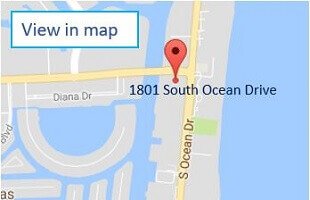Or sign in with
Content
Robo-advisors certainly have their place, and there’s no reason you cannot have both a dealing account and a robo-advisor product. However, robos do occupy a different place in investment strategy, usually for long-term horizon investments. Discount brokers came to being in the 1970s when the markets were freer for the first time. Charles Schwab was one of the first, and the company sparked a revolution. Your investor type plays the most significant role in creating your short list of potential brokers.
If you work in a large city, your base salary is high, and you receive better commissions and bonuses. Small towns often have a low cost of living and fewer clients, which affects the earnings and commissions. Antonia is the Financial Editor at InvestingReviews.co.uk and brings a wealth of experience, having written for various industries over the past 10 years. Her investment platform reviews, news, blogs and guides are meticulously researched, fact checked, and updated on a regular basis. With AJ Bell YouInvest, you can open a dealing account for general trading as well as ISA and SIPP products.
For example, iWeb Share Dealing, Lloyds Bank Direct Investments, Bank of Scotland Share Dealing, and Halifax Share Dealing are all part of Halifax Share Dealing Limited. So diversifying between any of those four brokers makes no difference when it comes to protecting against bankruptcy. You can check whether your broker’s authorised by searching the FCA’s register.

Financial products, standards, codes, markets and laws are regularly changing. Therefore, brokers must keep abreast with the latest developments and changes to comply with the law and ensure they carry out their roles effectively and correctly. Continuing professional development gives brokers the knowledge and skills to keep up to date with these changes, understand their responsibilities and progress in their careers. CPD may also be mandatory for some brokers, e.g. mortgage brokers. Shipping brokers – specialise in cargo and commercial goods shipping contracts to get the best deals and discounts for clients.
General Insurance is regulated by the FCA, so it is essential that brokers operate in a compliant manner. Whether you choose to go down the Directly Authorised or Appointed Representative route knowledge of the FCA requirements is essential. There is a broad range of support services available, online training and development and industry bodies can all help you to ensure that your knowledge remains current. Although there is a lot to accomplish at first, once you get your company off the ground and thriving, there is nothing more thrilling. Starting any business involves a solid plan, determination, and a high level of personal motivation. Starting your own brokerage firm is no different, and also requires the additional knowledge and experience of a stock broker.
As we’ve seen already, there are a few factors you’ll want to consider before you open a brokerage account. When you go to open an investment account you’ll probably be given the opportunity to open one of several different account types. This may sound like a long process but it really shouldn’t be and, if you do it right, then you’ll end up with the best brokerage account for you.
The level of security is dependent on the system of controls in place at the broker. All your assets are safely ring-fenced from those belonging to the broker in a segregated nominee account, and uninvested cash is held at a large bank. You need a degree in finance or business management to land a job as a broker. Work experience and certifications also increase your prospects.
As you are self-employed, tax isn’t automatically deducted from your income in the same way it is deducted by your employer on a wage slip. This means that once a year you will have to complete your own tax return. Some how to start a broker business self-employed people find it easiest to outsource an accountant to help them with this process, and some people prefer to do it themselves. As a self-employed broker you will need to register as a sole trader on HMRC .
Insurance brokers – specialise in different insurance products and help clients find the correct cover for the best price. They can choose to further specialise in specific insurance products and clients. The type of training required will depend on what employers are looking for and the brokerage/industry in which brokers specialise. It is worth looking at several job advertisements to identify the training required for specific roles and specialisms. Jobs are on websites such as GOV.UK find a job service, Indeed, LinkedIn, eFinancialCareers, City Jobs UK, topfinancialjobs.co.uk, Junior-Broker.com, Graduate Broker and other job sites. A limited company means a company which is a separate legal and financial entity to you, meaning income from the company goes into a business bank account.
Profits of parent – If the broker ends up going bust, it’s a lot more likely it’ll be bailed out by the corporate equivalent of the bank of Mum and Dad if its parent company is well-capitalised. Again, figures for parent companies tend to be easier to come by given their size. In the event of them going bust, it may take the broker some time to figure out which shares are held on behalf of which client if they haven’t kept accurate records. This all depends on the record-keeping abilities of the broker. If they’re diligent then there should be no problems, but if not, then it may cause difficulties in figuring out which shares belong to which client. Although the regulator will check up on the broker’s activity occasionally, they obviously can’t keep track of which assets are in which accounts all the time.
Of the 10 brokers I had a look at , only 3 offered CREST accounts. Charges were £500 per year, £1,200 per year, and £5,500 per year. It’s possible to ensure your assets are kept separate from the pooled https://xcritical.com/ nominee account by opening what’s known as a CREST account with the broker. So it’s not an impossibility that you’d have to shoulder some of the financial burden for a company’s poor record-keeping.
Some networks can also be rigid in their working practices, which may not suit genuinely entrepreneurial brokers. Going It Alone – historically, this is how new brokerages were founded. Experienced brokers would find some premises, get their FCA authorisation, approach their insurer contacts to open agencies, and start trading.
74-89% of retail investor accounts lose money when trading CFDs. You should consider whether you understand how CFDs work and if you can afford to take the high risk of losing your money. A-Book model is a model of operation in which all trader orders are passed by the broker to a liquidity provider, who then redirects them to the interbank. The broker’s income is a commission for the carried out deals volume or markup on the spread, so-called markup.
MT: How to start a new brokerage firm with free white label solution … http://t.co/1BCkNm5y hot IT jobs http://t.co/C21oWKKG
— Babysoft Software (@babysoftS) April 12, 2012
The first decision you will have to make when setting up your brokerage is deciding whether you will be self-employed or be a company. This how-to guide will provide you with a comprehensive understanding of what setting up as a broker entails, how the process usually works, and what your future as a broker may look like. With experience and a good track record you could progress to become a trader, relationship manager or fund manager.
Some employers may take on individuals and train them on the job if they have the necessary personal qualities and enthusiasm for the role. It would help individuals to have some experience in finance, sales or customer services, and a keen interest in financial markets is essential. Being a broker is not a 9–5 job, and those looking at entering this profession must be committed to working unsociable hours. Some types of brokers, e.g. stockbrokers, have early morning starts due to covering the opening of the world’s financial markets. There may also be a requirement to communicate with overseas clients, and brokers may need to work evenings and nights.
Money laundering regulations mean most stockbrokers won’t take overseas clients, so check first if you are looking to open an account from abroad. Some brokers will charge trading commissions and subscription fees, others may charge no commissions but make you pay an annual account charge. Your goals influence which platform you’ll use because they’ll determine things like the assets you want, the fees you’re prepared to pay or the tools you need to make investment decisions. Having access to the financial markets is great in the sense that it provides you with an opportunity to invest and grow your wealth.
These fees tend to be tiered according to the number of trades you completed in the previous month. They serve as a carrot to encourage you to continue trading and prevent dormant trading accounts. Individuals just don’t have the same access to stock exchanges without a more specialist broker to help navigate, even with a DIY-friendly broker. Most brokerage accounts offer a DIY service where you choose what to invest in. Others also provide accounts that are advised, with a financial professional managing your funds for you.
You’ll probably need to register as a sole trader even if your brokerage business is supplementary to an employed job. On the other hand, brokers may implement crypto payments processed by theB2BinPaysolution. Over 300 million people hold digital assets which means they would be able to open an account in your company. Lastly, choosefinancial advisorswho know the industry very well. The last thing you want is failing when you’re just getting started. You can pay them on commission basis, according to their performance, or simply pay them a flat fee.
All brokers need a natural talent for selling and must be registered with the FCA to become an ‘approved person’ and carry out their responsibilities ethically and professionally. Any additional areas of expertise will depend on what a company is looking for and the specialist areas a broker wants to work. Further qualifications and training will usually be necessary for specialised areas, e.g. mortgages.
Part-time positions are rare, but you can find freelancing opportunities. Being a broker also involves travelling to visit clients or close a deal, and sometimes you travel abroad. For instance, in real estate, you advertise properties, determine their market value and organise showings to potential buyers. You also advise the seller on the ideal selling time and offers worth considering. If you work in finance, you trade bonds or financial products on behalf of your clients. As a result, the landscape has changed dramatically compared to ten years ago.

 1801 South Ocean Drive, Suite C Hallandale Beach, FL 33009
1801 South Ocean Drive, Suite C Hallandale Beach, FL 33009
For more information call us:
(786) 797.0441 or or: 305 984 5805